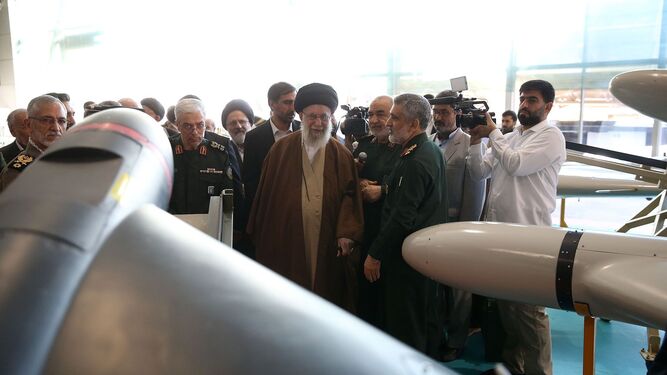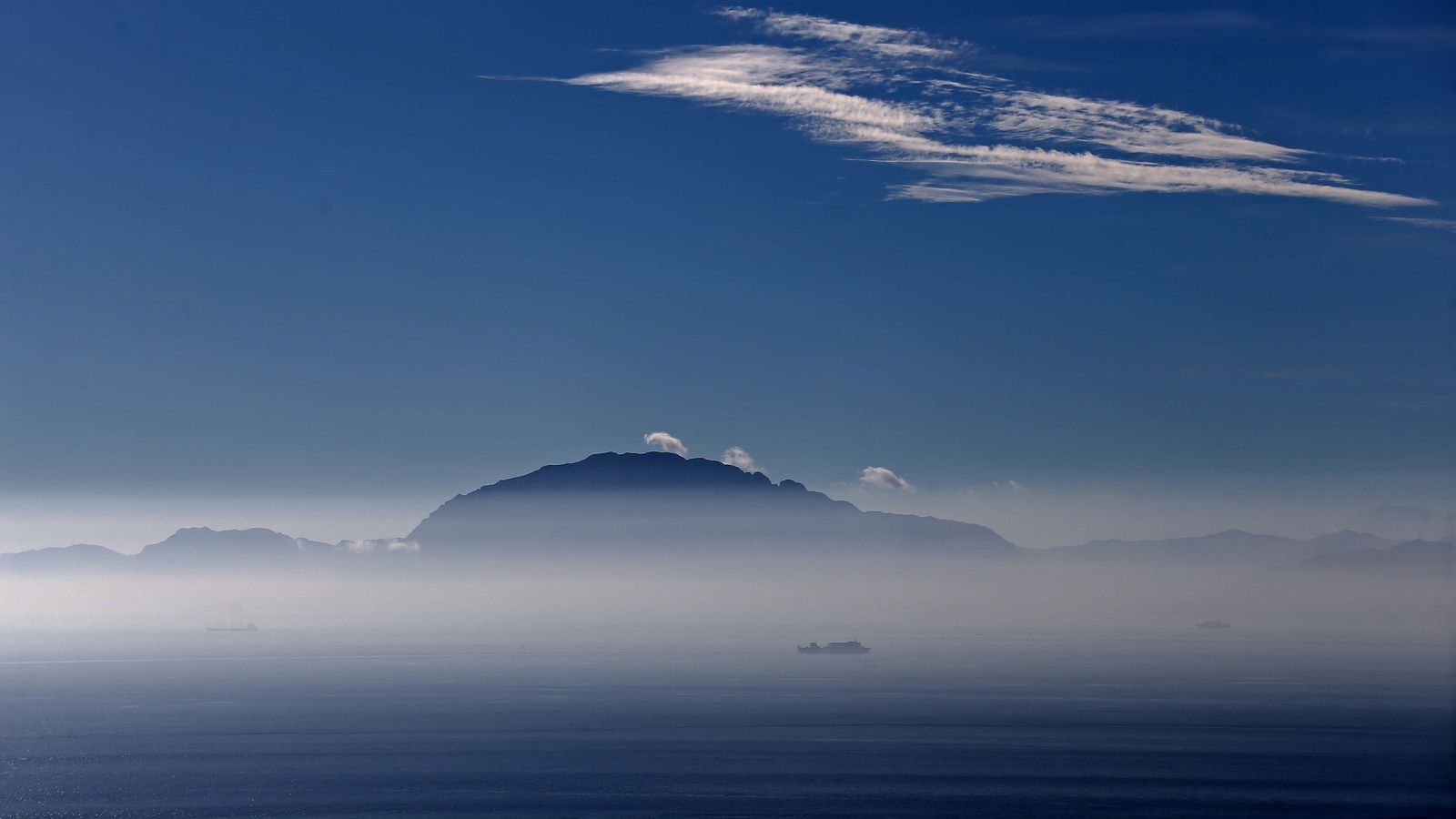
The Islamic Revolutionary Guard, a branch of the Iranian Armed Forces dedicated to protecting the political system of the Islamic Republic from foreign interference, is targeting the Strait of Gibraltar.
Brigadier General Mohammad Reza Naqdi, the coordinating commander of the Corps, has threatened this Saturday to "close" the passage between the Mediterranean and the Atlantic, as has happened with the Red Sea, if Israel continues to commit "crimes" in Gaza with the support of the United States and other countries in Western Europe, as reported by several official Iranian media.
"This is not just rhetoric; they had better expect the closure of the Mediterranean Sea, the Gibraltar [Strait], and other waterways," expressed the Iranian commander in statements quoted by the semi-official Mehr agency.
The Houthi rebels in Yemen, backed by Iran, attacked several merchant ships sailing through the Red Sea over the last month while threatening to end any ship they believe is linked to Israel. They carried out these operations with drones against these ships as a gesture of support for the Palestinian Islamist movement Hamas in its war against the Israeli government.
THE STRAIT OF GIBRALTAR IS A VITAL MARITIME ROUTE FOR WORLD TRADE, WITH AN AVERAGE OF 300 SHIPS CROSSING IT EVERY DAY
Major European and Asian shipping companies ordered the suspension of their vessels' transit through the maritime corridor of the Red Sea and the Suez Canal - which accounts for 13% of global maritime traffic - in response to this wave of attacks. Companies began diverting their ships along the Cape of Good Hope route (South Africa) earlier this week, despite being a detour that involves up to ten days more of navigation and additional costs. This instability will cause tensions in ports worldwide, reflecting in foreseeable delays in the coming weeks.
The White House stated last Friday that Iran was "deeply involved" in planning operations against commercial ships in the Red Sea days after announcing plans to lead an international maritime coalition in response to this escalation of attacks on commercial vessels. More than 20 countries have already committed to participating in the so-called Operation Guardian of Prosperity initiated by the Americans.
Iran does not have direct access to the Mediterranean, and it has not explained how the Islamic Revolutionary Guard could attempt to close the Strait of Gibraltar. Still, Naqdi spoke of the "birth of new powers of resistance and the closing of other waterways." "Yesterday, the Persian Gulf and the Strait of Hormuz became a nightmare for them, and today they are trapped... in the Red Sea," he exclaimed.
The only groups backed by Iran in the Mediterranean are Hezbollah in Lebanon and allied militias in Syria, on the opposite end of this sea from the Strait of Gibraltar.
The threat from Jamenei
Iran's Supreme Leader, Ayatollah Ali Khamenei, called on the Muslim world on Saturday to prevent fuel from reaching Israel. In a post on his account (formerly Twitter), he said, "Certain Muslim governments are committing a crime by helping the Zionist regime. Today, it is the duty of Muslim governments to prevent raw materials, oil, fuel, etc., from reaching the Zionist regime, just as it is preventing water from reaching Gaza."
The Danish shipping company AP Moller-Maersk reported on December 14 that its container ship Maersk Gibraltar was attacked by a missile while sailing in the Red Sea from Salalah, Oman, to Jeddah, Saudi Arabia.
"More than 10,000 children have been martyred in Gaza in the last 80 days," said General Mohammad Reza Naqdi. "Today, we are all witnesses to the unprecedented awakening of nations. People worldwide have been on the streets for almost 80 days, shouting for justice. Throughout these days, people have filed complaints and shouted against the oppressors," he added.
"The Zionist regime and the United States have gone crazy due to the severity and brutality of their crimes," added the deputy chief commander of the Corps, which consists of 125,000 military personnel and ground, air, and naval forces with immense power in Iran, as stated by Javier María Ruiz Arévalo, Training and Doctrine Commander of the Spanish Army, in an article published by Resi, a magazine of Studies in International Security.
"Founded after the triumph of the Islamic Revolution, the Islamic Revolutionary Guard Corps of Iran has evolved far beyond its original foundations as the ideological guard of the nascent revolutionary regime. Today, it functions as a socio-political-economic conglomerate, whose influence extends to all areas of Iranian life. Its members have articulated their vision of the Islamic Republic, which they feel committed to defending, becoming guarantors of the regime's ideological purity, on which the Supreme Leader relies while increasingly depending on it to survive," he explained.
The Strait of Gibraltar is a vital maritime route for world trade, with an average of 300 ships crossing it every day. This represents approximately 20% of the world's total maritime trade and 80% of the EU's oil and gas imports.
